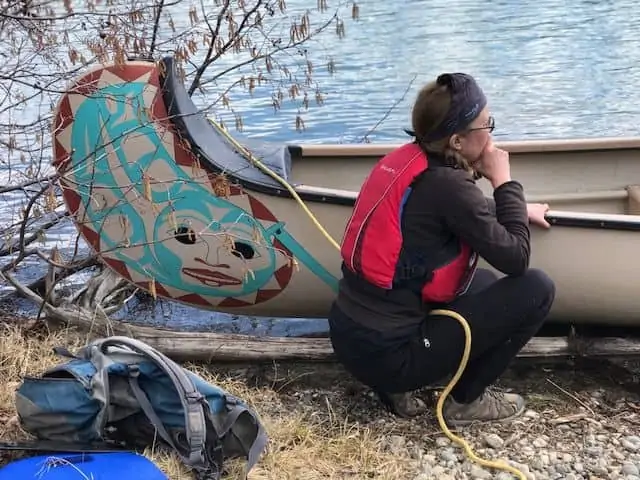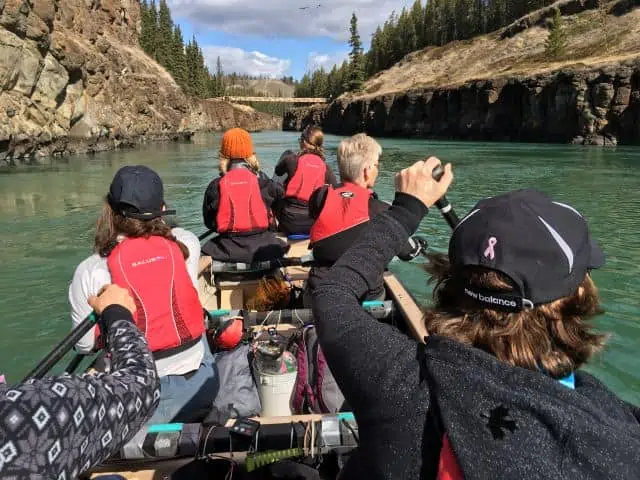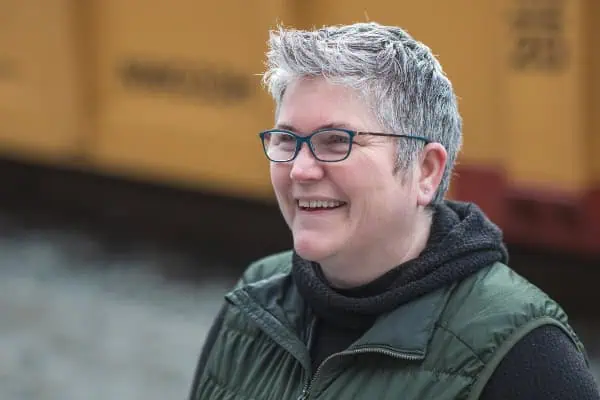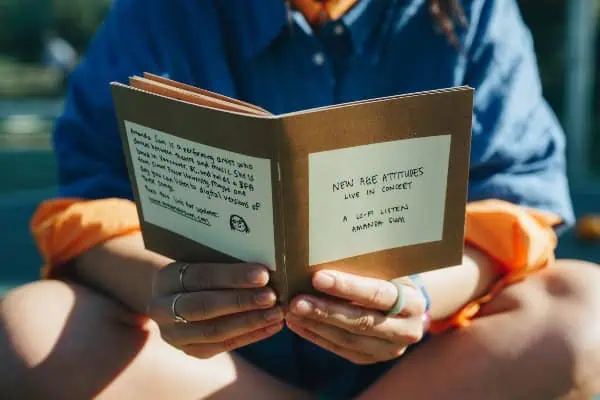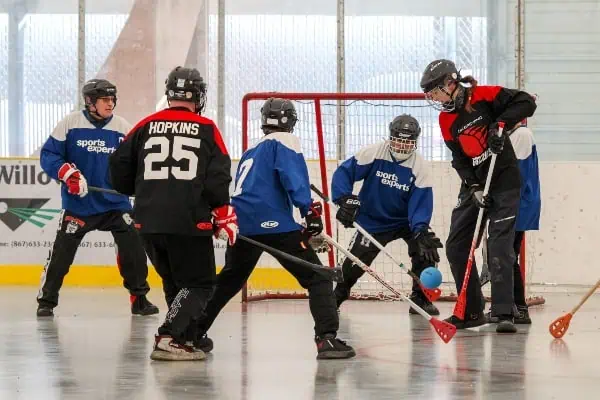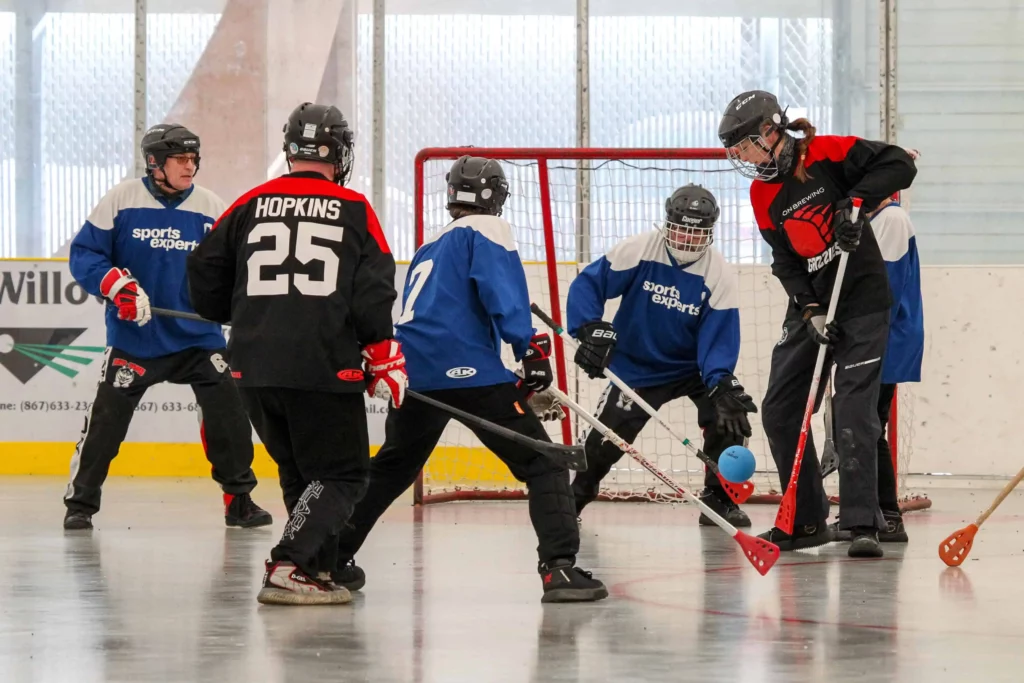The world’s longest annual paddling race is celebrating its 20th anniversary this year with the largest slate of international teams and racers ever. Up to 277 racers on 125 teams are expected to start the race at Rotary Peace Park at noon on June 27.
Entering the Yukon River, in a flotilla of canoes, kayaks and stand-up paddleboards, they’ll begin a gruelling 715-kilometre wilderness journey to Dawson. Guiding rules say participants should have wilderness or racing experience. And Yukon River Quest (YRQ) president Roger Hanberg half jests, “You have to be a little bit crazy to enter, don’t you think?”
After paddling all night, up to a third of the teams (depending on weather conditions) can be expected to scratch in Carmacks, the mandatory seven-hour rest stop. Those continuing will get a brief three-hour rest stop the next night, at the remote Coffee Creek checkpoint, before the final push to Dawson.
“Some paddlers—both men and women—are the best in their class, in the world. Others are solo competitors, or teams of family or friends, seeking a challenge or adventure, “ said media spokesperson Jeff Brady.
Inspirational race stories and paddlers abound. Despite her senior status, racing legend Ingrid Wilcox is registered to do the race “one more time” in her solo kayak for her 17th YRQ.
Paddlers Abreast, the first voyageur team to join in 2001, continues to help breast cancer survivors race to get stronger mentally and physically. New member Rachelle Zral says she aims to “enjoy every minute” doing that, especially for her children, who saw her go through “a tough time.”
Long-time volunteer Sheila Dodd calls the distinctive moon-faced boat (painted by First Nation artist Ken Anderson) the “mothership” that has helped serve as the race’s “moral vision.”
Several other teams support worthy causes, such as women’s voyageur team Stix Together, who fundraise for the Yukoners Cancer Care Fund. Teams of British Army amputee veterans have also challenged themselves to finish what has been called one of the ten toughest races in the world.
“This is an event that can be the biggest sporting accomplishment in a participant’s life,” emphasizes Hanberg. “It’s transformative in meeting personal goals and growth.”
Hanberg has family on the water this year, too. Second-generation YRQ paddler Alice Frost-Hanberg is racing with her mother, Pauline Frost, a YRQ veteran racer (and Yukon Government cabinet minister) for the first time. (Paddlers can compete starting at 15 years of age with a team, but must be over 18 to compete solo.)
Whatever the age or motivation of racers, Hanberg says his goal is to “get everyone to the finish line safely.
“To do that, there will be about one volunteer for every paddler.”
Race duties are many, including race-week events, boat checking, start-line and finish-line management, and tracking racers through five checkpoints and seven monitoring points. Safety boats will patrol the route, especially on Lake Laberge where 12 rescues once took place.
At press time, volunteers were still needed to help make this unique Yukon race a memorable and safe event.
(And you don’t have to be crazy to sign up.)
Several special anniversary events will take place during Yukon River Quest race week.
- The big one is the “meet and greet” reunion for “race family”—racers, support crews, volunteers and sponsors past and present—at the SS Klondike grounds from 6 to 9 p.m. on June 25.
- Anniversary planner Sheila Dodd says she’s still trying to reach over 1,000 invitees. “Many did this race in their younger years and they’ve moved on, got married, changed countries and jobs … it’s a real challenge.”
- A special thank-you dinner event for volunteers and support crews is planned for Carmacks checkpoint campground on Wednesday July 27 between 6 and 10 p.m., before the arrival of this year’s racers.
- After the finish in Dawson, there’ll be celebrations and an awards banquet on July 1 at Waterfront Park. Race merchandise will be on-site, and an exhibition organized by race photographer Harry Kern, and one by Paddlers Abreast, will be on display.
Hanberg says the anniversary will include “significant recognition” of the five Yukon First Nations traditional territories through which the Yukon River route passes.
Jenny Trapnell is a 2018 Yukon River Quest paddler and former race volunteer.
The Yukon River Quest—by the numbers
- History: After the success of the Skagway-led Dyea to Dawson Klondike Centennial Race in 1997–98, Whitehorse resident John Firth organized the first YRQ in 1999, from Whitehorse to Dawson, as a sister race to the Yukon Quest. The Yukon River Quest is now run by a separate organization, the Yukon River Marathon Paddlers Association.
- The boats: What started as a straightforward canoe race now includes four divisions and nine classes comprising solo, tandem and four-person canoes, voyageur boats, solo and tandem kayaks and the surprisingly successful Stand Up Paddleboard (SUP). TThe newest class is the C-4, a four-person canoe.
- The race record: 39:32:43 hours, set in 2008 by Canadian voyageur Team Kisseynew.
- The purse: $42,000—the largest ever—for rewarding the fastest teams (under 55 hours) in the various classes and divisions, the top First Nations team, and top Yukon canoe and kayak teams. There are also sponsored awards, including for the oldest paddler (55+), the Spirit of the Yukon, and the “Red Stove” award for the second-last finisher.
- The Spectators: It’s hard to follow a wilderness race in person. But the mandatory SPOT (or other) tracking device that each team now carries helps attract thousands of visitors who follow the race online: “Over 30,000 [race followers] last year, from all over the world,” said YRQ director and stats keeper, Peter Coates.

